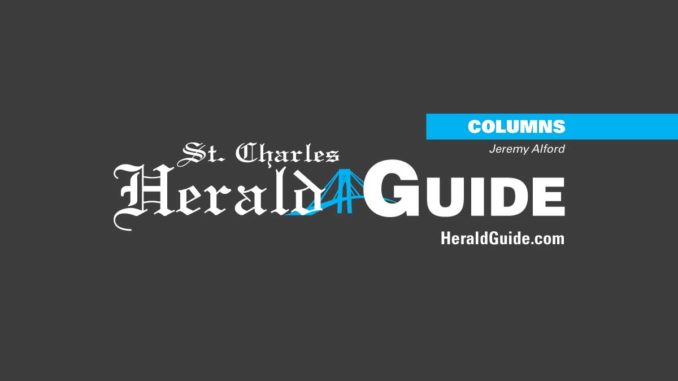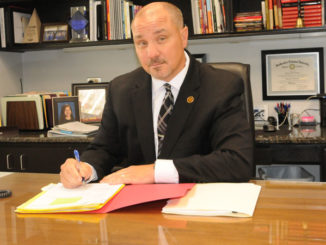
Given the treacherous tax votes that state lawmakers took during this year’s regular session, many now find themselves on the defensive as the fall election season kicks into high gear.
Long-timers have certainly been in such a position before, but it’s doubtful they’ve ever had to deal with so many outside players and special interests trying to influence their races.
That’s due in large part to the evolving political landscape, where more money than ever is being dumped into elections, but it’s also attributable to the number of seats that will have fresh faces in them next year.
As of this week, there are 32 wide open seats in the House and Senate with no incumbents running for re-election. Of this count, 21 seats are vacant because of term limits. Of the remaining 11, two lawmakers are running for higher office. The rest are trying to switch chambers, either from the House to the Senate or, in one case, a senator running for the House.
While the Louisiana Association of Business and Industry and the state chapter of Americans For Prosperity have already made big splashes in the legislative election pool with scorecards grading lawmakers’ votes, other groups are gearing up to play in the races as well.
Shipbuilding magnate Boysie Bollinger is said to be working and actively meeting with a diverse group to form a tort reform campaign initiative to influence the fall elections.
In addition to donors and business types, the effort is pulling in folks linked to the state’s biggest legacy and pharmacy suits.
U.S. Sen. Bill Cassidy had expressed interest earlier this year in reviving the Louisiana Committee for a Republican Majority, which senior U.S. Sen. David Vitter originally created to put more Republicans in the Legislature.
That option is looking unlikely today, but conservative activists say Cassidy has said he wants be involved in the fall legislative elections anyway. To what extent remains to be seen.
The Louisiana Chapter of the National Federation of Independent Business is the latest to come out with its legislative scorecard, released last week. It does not bode well for lawmakers, who are already fighting low marks released by other special interests like LABI and AFP.
Based on votes from the 2014 and 2015 sessions, 27 out of 39 senators failed to achieve a score of 70 percent, which guarantees endorsement eligibility with NFIB. In the House, 54 out of 105 representatives received scores below 70 percent.
State director Dawn Starns said scoring 70 percent or above gives a candidate automatic endorsement eligibility, but NFIB’s PAC board still has to vote on the official backing. And even if a lawmaker fails to score above the benchmark, they can still submit a questionnaire to be considered for an endorsement, just like their challengers.
“We will make an announcement about incumbent endorsements the beginning of the week after qualifying,” Starns said. “We will also do candidate endorsements in some open seats and we will engage our grassroots outreach during the election cycle using the tools we have like mail, robocalls, radio and online ads.”
AFP and LABI, of course, made a great deal of noise with their respective scorecards that were released last month. LABI, in particular, served up failing grades for 94 members of the Legislature for the most recent session, but is still supporting many of them based on their four-year cumulative grades.
Likewise of interest will be how other corners of the larger business lobby will approach the fall elections. The Louisiana Mid-Continent Oil and Gas Association is promising to spend more cash than ever before and the Louisiana Chemical Association offered a teaser of sorts with a radio buy during session.
Should all of the groups listed above, plus the others on the edges, get on the same page with messaging that communicates an anti-incumbent sentiment, the legislative races could become much more interesting — not for who is on the ballot, but rather for who is playing behind the scenes.
A careful watch on oil prices
The state’s budget handlers rightfully say there’s nothing to panic over. For now.
They also add that there’s no reason yet to believe the current fiscal year budget requires an adjustment. But eyeballs are nonetheless beginning to turn and watch the slipping of oil prices.
The budget that went into effect on July 1 for the 2015-16 fiscal year is based on oil being at an annual average of $61 per barrel, according to Greg Albrecht, the state’s chief economist. In comparison, oil dropped to its lowest level in nearly three months in July, closing repeatedly in the low $50 range.
Analysts are predicting that the dip could persist if international problems continue to mount in Greece, China and Iran. Moreover, Goldman Sachs is already predicting that a “negative feedback loop” could push prices even lower.
Albrecht said Louisiana loses $12 million for every $1 decrease in the annual average price of a barrel of oil.
“If this is something that is sustained over several weeks, it could possibly be something to be concerned about,” he said. “I don’t worry about the daily prices at all, but the outlook has been weakening.”
If a downward adjustment is needed for what the state has forecasted for oil prices, it would mean less money for the current budget. But in no way is that being signaled at this time.
Nonprofit-superPAC combo eyes A.G. race
With the super PAC practice now nearly fully entrenched in big time Louisiana politics, with political action committees raising unlimited amounts of money, the next trend to watch for involves associated 501(c)(4) tax-exempt organizations. It’s becoming more common in the presidential race, with candidate Marco Rubio leading the way — and it’s beginning to surface in Louisiana, at least in one race further down the statewide ballot.
John Mathis of Baton Rouge, a businessman who was involved in the 2014 campaign of Congressman Garret Graves, has created the nonprofit Solution Fund in Louisiana to influence this year’s attorney general’s election.
He said he has so far raised $196,000 and is focusing on social media for now. While there are restrictions on just how involved a 501(c)(4) can be in elections, many donors are attracted to such dark money groups since donations do not have to be revealed.
The next move for Solution Fund will be the creation of a related super PAC that is expected to be supportive of former Congressman Jeff Landry’s run for attorney general. Super PACs, thanks to a U.S. Supreme Court decision likening money with free speech, are allow to raise unlimited amounts of contributions without coordinating on strategy with the candidates and campaigns they support.
They Said It
“Some people told me that Louisiana was a conservative state. Guess not.”—Democratic presidential candidate Bernie Sanders before a crowd of about 4,500 people in Kenner, in Bloomberg





Be the first to comment